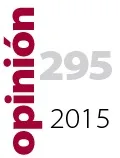Elections and Peace in Africa: Perspectives for 2015

Anna Lührmann
Doctoral Researcher, Humboldt University, Berlin
15 de Enero, 2015 / Opinión CIDOB, n.º 295 / E-ISSN 2014-0843
2015 promises to be a record election year for Africa because 17 African countries have scheduled national elections. In the last decades almost all African countries established some sort of national practice to hold elections. Initially, the international community has euphorically welcomed this development as democratization processes and offered support. Many saw in elections a magic bullet for peace, stability and prosperity. But several negative experiences with post-electoral violence, for example in Kenya after the 2007 elections, have considerably sobered the initial enthusiasm. Today, premature elections are often viewed as causes for conflict rather than as an instrument for peace.
However, neither the initial enthusiasm nor the latest skepticism adequately appraise recent experiences with elections in Africa. Even if some recent African elections were accompanied by violent clashes, it is doubtful that the mere procedure of elections lies at the cause of violence. The 2011 elections in Nigeria were considered the most free and fair elections in the country’s history. Nevertheless, after the presidential election, protests by supporters of the defeated candidate turned violent, reportedly claiming the lives of more than 800 people. This tragic outcome deserves to be analyzed in perspective.
While sparked by dissatisfaction with the electoral result, the violent clashes followed sectarian and inter-communal conflict patterns that regrettably have characterized Nigeria’s society for a long time. According to a 2011 Human Rights Watch report, 15,700 people have been killed in Nigeria in similar incidences of violence since 1999. Hence, instead of blaming the violence on elections, underlying political and societal causes should be effectively addressed. Unfortunately, ahead of the next round of elections in Nigeria (February 2015) the security situation has reached a new low point with Boko Haram reportedly killing 2,000 people within one week in early January. Elections have not caused Nigeria’s security problems and cannot be expected to solve them either.
This also applies for other upcoming election in Africa. Amidst civil war, the South Sudanese government seems to be determined to hold election in 2015. Various opposition groups have called for a postponement of elections until a peace agreement is reached. This seems sensible. Bullets cannot be expected to transform into ballots overnight. It needs consensus about the rules of the game as well as a level playing field for all political parties. In recent, internationally mediated peace agreements elections were included as important milestones. On the one hand, this is a positive development, because it embeds post-conflict elections in the context of a broader political agreement. Such a political consensus is a necessary condition in order to ensure that electoral loser’s consent to the newly elected government.
On the other hand, a peace agreement including transitional elections is not enough to ensure accepted elections. For example, in 2010 the then president of the Ivory Coast, Laurent Gbagbo, refused to accept electoral defeat even though he had signed a peace agreement in 2007 including transitional elections. In the post-electoral violent conflict between his supporters and supporters of his internationally recognized successor, Alassane Ouattara, 1,500 people were killed and one million fled their homes.
This episode illustrates that political violence might culminate around election dates, but is caused by escalating power struggles. Elections as such neither cause war nor bring peace. Instead of harboring unrealistic expectations about elections as an instrument for peace building, we should remember the original justification of participation in genuine elections as a fundamental human right. According to the Universal Declaration of Human Rights (Art. 21) through genuine elections the “will of the people shall be the basis of the authority of government.”
Based on this notion, free and fair elections are an end in itself. Therefore, international support to African elections should remain a top priority. Until now, electoral assistance is mainly focused on technical assistance to election management. However, the key to the mitigation of election-related violence is trust in electoral procedures and the acceptance of electoral outcomes. Hence, international actors should put more energy in building consensus among political parties about electoral rules and procedures. The promotion of electoral rules aimed at inclusive coalition building rather than winner-takes-it-all approaches can also be promising.
This endorsement of electoral assistance does not imply that the international community should support any upcoming African elections. Strong dictators manipulate elections even before the first polling station opens its doors. In such contexts, the electoral presence of international observers and assistance providers mainly adds to the legitimacy of the incumbent. This applies particularly to Sudan, where one of Africa’s most vicious dictatorships is getting ready for elections in April 2015. After decades of severe oppression, it is crystal clear that citizens will not be able to express their will freely in this exercise. Already in 2010 the Sudanese government demonstrated its willingness and ability to keep the quality of elections low despite substantial international electoral assistance. Consequently, most Sudanese opposition parties stay away from the 2015 polls and the international community should do so as well in order to avoid re-legitimizing ICC-indicted Omar Al-Bashir.
International actors should offer electoral assistance only to regimes which demonstrate a commitment to genuine and credible elections.